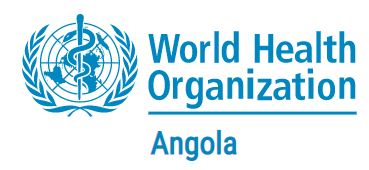Angola is one of five countries where dracunculiasis has not yet been eradicated. Between 2018 and 2020, human cases were identified in Cunene province, making the country endemic for this disease.
Dracunculiasis is a parasitic disease caused by Dracunculus medinensis, a long white worm that can measure between 60 and 100 centimetres. There is currently no treatment for dracunculiasis, and prevention is the safest and most effective measure to avoid its transmission.
The Ministry of Health has implemented all the interventions recommended by the WHO, including community-based surveillance, vector control and the proactive trapping of domestic animals. For its part, the World Health Organisation (WHO) and other partners, notably the Carter Centre (TCC), support the country’s efforts to eradicate dracunculiasis by providing technical assistance, coordinating eradication activities, strengthening surveillance in areas free of the disease and monitoring and reporting on progress.
In this context, the WHO in Angola will carry out a mission to Cunene province from 15 to 17 July 2024 to strengthen partnerships to combat dracunculiasis. The mission will include meetings with the provincial government and health authorities in the municipality of Ondjiva, followed by fieldwork in the municipality of Namacunde to verify the treatment of surface water with the larvicide Abate in the village of Oluxwa ya Kalunga.
“We are working to strengthen the joint approach to ensure the adoption of crucial measures to contain and reduce the transmission of dracunculiasis,” said Dr Nzuzi Katondi, WHO Neglected Tropical Diseases officer in Angola.
Furthermore, the mission includes planned meetings with traditional authorities and a community dialogue. These engagements are of utmost importance as they aim to foster effective collaboration among all stakeholders. Such collaboration is pivotal in overcoming obstacles and achieving the complete eradication of dracunculiasis in Angola.
During the meetings and community dialogue, crucial topics will be addressed, such as the challenges faced in eradicating dracunculiasis and the opportunities for collaboration between the WHO, the local government, health authorities and other strategic partners.
With the field mission, the WHO hopes to strengthen cooperation to improve surveillance, prevention, and response to dracunculiasis and explore ways to increase public awareness and community participation
Distributed by APO Group on behalf of World Health Organization (WHO) – Angola.

